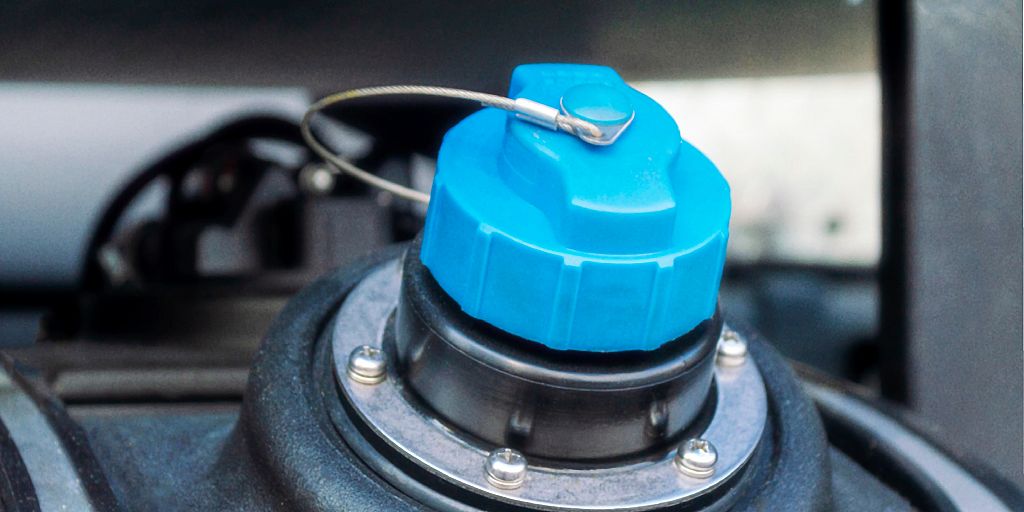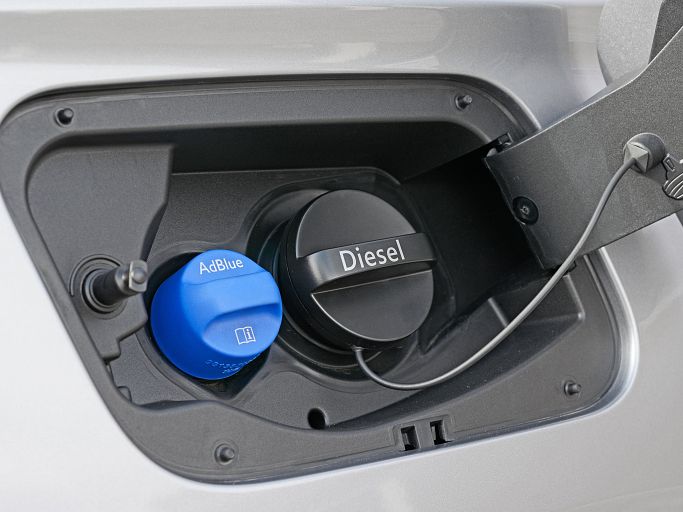- Oil
- Diesel
- Petrol
- AdBlue
- Water
- Sewage
- Hot Water Cylinders
-
Brands
- New Releases
- In Stock
- Sale
- Best Sellers
- Fuel Tank Hire
- More
-
Services
Top Tips for Maintaining and Refilling AdBlue Tanks
20th August 2024 in adblue
Author: Jack Dunn
AdBlue, a solution of urea and deionised water, plays a crucial role in reducing emissions for diesel engines in compliance with stringent environmental regulations. As industries and farming operations increasingly adopt AdBlue to meet these standards, proper storage and handling have become critical. Whether you're managing a large fleet of agricultural machinery or using AdBlue in industrial operations, understanding the best practices for AdBlue storage and maintenance is key to ensuring its effectiveness and longevity. In this guide, we'll cover essential tips for storing AdBlue, how to maintain your storage tanks, and other important considerations.
How Should AdBlue Be Stored?
Proper storage is vital to maintaining the quality of AdBlue. It should be stored in tanks specifically designed for AdBlue to prevent contamination and degradation. These tanks are typically made of materials that are compatible with AdBlue, such as high-density polyethylene (HDPE), which is resistant to corrosion. The storage environment should be controlled, ideally keeping temperatures between -11°C and 30°C, as extreme temperatures can cause AdBlue to crystallise or degrade.
Can AdBlue Be Stored in Plastic Containers?
Yes, AdBlue can be stored in plastic containers, provided they are made from materials that do not react with the solution, such as HDPE. It's important to avoid using containers that previously held other substances, as even trace amounts of contaminants can compromise the quality of AdBlue.
Does AdBlue Need to Be Stored in a Bund?
For larger quantities of AdBlue, it is advisable to store the tanks within a bunded area. A bund is a secondary containment system designed to capture any leaks or spills, preventing environmental contamination. This is particularly important for industrial and agricultural settings where large volumes of AdBlue are stored, as it provides an additional layer of safety and compliance with environmental regulations.
How Long Can You Keep AdBlue Once Opened?
Once opened, AdBlue can last up to 12 months, provided it is stored correctly. Exposure to air and contaminants can shorten its shelf life, so it's crucial to reseal containers tightly after each use. Regular checks on the condition of the AdBlue should be part of your routine maintenance to ensure it remains effective.
Unopened, properly stored AdBlue typically has a shelf life of 12 to 18 months. However, factors such as exposure to sunlight, extreme temperatures, and contamination can reduce its longevity. To maximise shelf life, store AdBlue in a cool, dry place away from direct sunlight.
Can I Overfill My AdBlue Tank?
Overfilling an AdBlue tank is possible but not recommended. Overfilling can lead to spills, which not only waste the product but can also damage surrounding equipment and surfaces. To avoid this, use refilling equipment with automatic shut-off features designed to stop the flow once the tank is full.
Does AdBlue Go Off in the Tank?
AdBlue can degrade over time, especially if it sits unused for extended periods or is exposed to fluctuating temperatures. Regular usage and proper storage conditions are essential to prevent the solution from going off in the tank. If your equipment isn't in frequent use, it’s advisable to periodically check the AdBlue quality.
Routine Maintenance
Maintaining your plastic AdBlue tank is essential to ensure that the solution remains uncontaminated and effective. Here are some routine maintenance tips:
- Check for Leaks: Regularly inspect the tank and associated piping for leaks.
- Clean the Tank: Periodically clean the tank to remove any sediment or build-up that could contaminate the AdBlue.
- Inspect the Injector System: Ensure that the AdBlue injector system is clean and functioning correctly.
- Monitor Tank Levels: Use level indicators to keep track of your AdBlue supply and avoid running out.
Choosing the Right AdBlue Tank & Best Practices
Selecting the appropriate AdBlue storage tank is crucial for safe and efficient operation. Consider the following when choosing a tank:
- Capacity: Choose a tank size that aligns with your consumption needs. For business or agricultural operations, larger tanks may be necessary.
- Material: Ensure the tank is made from AdBlue-compatible materials like HDPE to avoid contamination.
- Features: Look for tanks with safety features such as level indicators, secure locking mechanisms, and integrated dispensing systems.
Always use refilling equipment specifically designed for AdBlue to prevent contamination and spillage. Even small amounts of dirt or oil can degrade AdBlue, potentially leading to equipment failure or non-compliance with emissions standards.
Tank R Us: Your Trusted AdBlue Tank Supplier
At Tank R Us, we are an accredited supplier with decades of expertise in providing high-quality tanks for all types of fuels, including AdBlue. Our extensive knowledge in fuel storage solutions enables us to offer tailored advice on the best tank for your specific application. Whether you need a tank for large-scale business use or for your agricultural equipment, our team can guide you in selecting the right product be it 220 litres through to 10,000 litres.
Additionally, we can recommend the most suitable AdBlue tank accessories to enhance your AdBlue storage system, ensuring you get the maximum efficiency and lifespan out of your supply.
Proper storage, routine maintenance, and the right equipment are key to ensuring the effectiveness of AdBlue in all commercial settings. By following these best practices, you can maximise the shelf life of your AdBlue, prevent costly mistakes, and ensure compliance with environmental regulations. Investing in high-quality storage solutions and maintaining them diligently will help your operations run smoothly and efficiently.
One of the largest selections of tanks in the UK
Chat online or call us today on 01469 531229
Related Products
More Articles

Understanding AdBlue: A Guide for Tank Owners
30th June 2024 in adblue

Top Tips for Maintaining and Refilling AdBlue Tanks
20th August 2024 in adblue
Help
About Us
My Account
Newsletter Sign Up
Inspiration direct to your inbox, please enter your email below...
Help About Us My Account
© Tanks R Us. All rights reserved. Registered in England. Registration number. 05804332. VAT number 364402764
Designed and produced by Kal Group